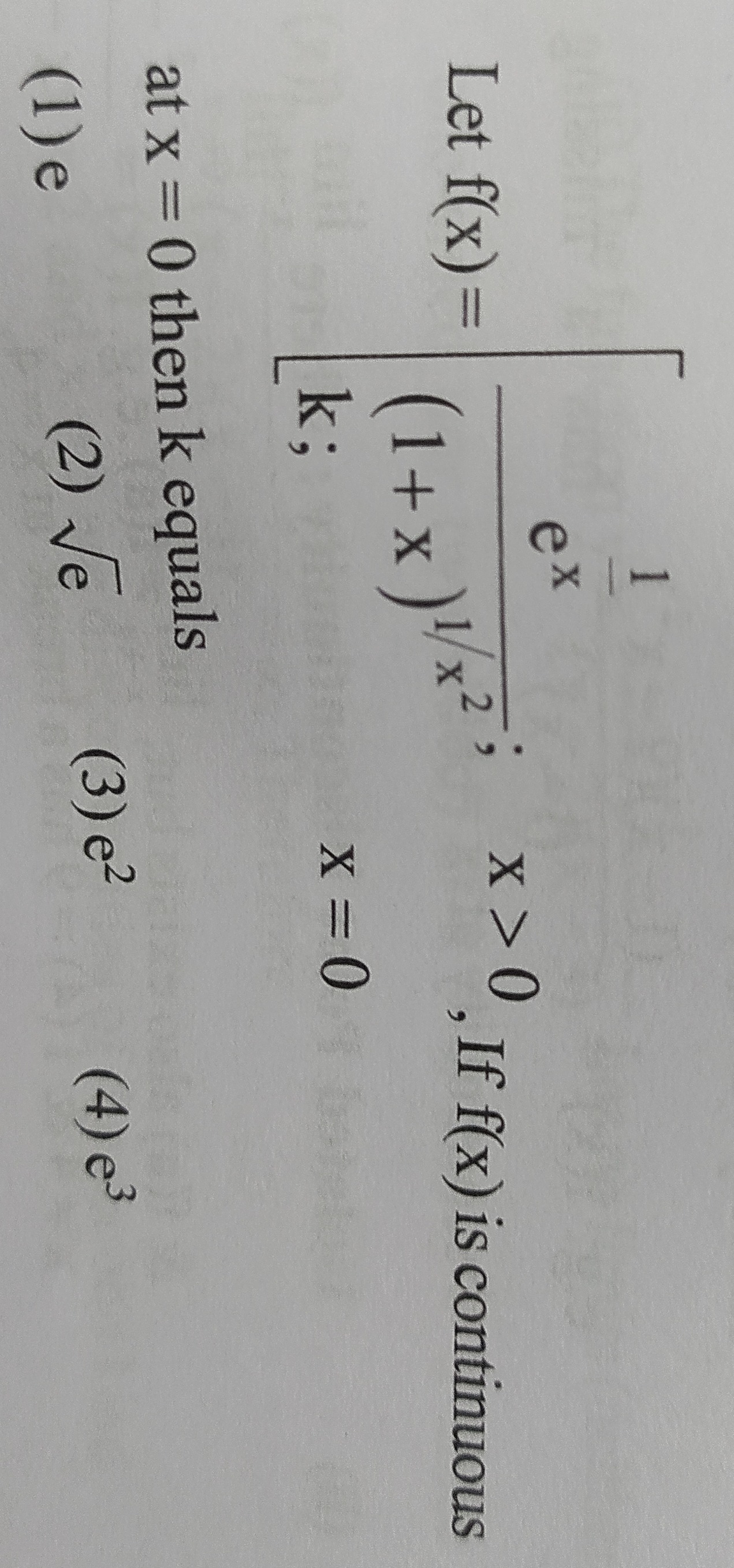Question
Question: Let $$ f(x)=\begin{cases} \frac{1-e^{x}}{(1+x)^{\frac{1}{x^2}}}; & x>0 \\ k; & x=0 \end{cases} $$ I...
Let
f(x)=⎩⎨⎧(1+x)x211−ex;k;x>0x=0If f(x) is continuous at x = 0 then k equals

e
e
e2
e3
sqrt(e)
Solution
For the function f(x) to be continuous at x=0, the limit of f(x) as x approaches 0 must be equal to f(0). We are given f(0)=k. The limit we need to evaluate is limx→0+f(x)=limx→0+(1+x)x211−ex.
Let's evaluate the limit of the numerator: limx→0+(1−ex)=1−e0=1−1=0.
Let's evaluate the limit of the denominator: Let y=(1+x)x21. Consider lny=x21ln(1+x). Using the Taylor series expansion for ln(1+x)=x−2x2+O(x3) for small x: lny=x21(x−2x2+O(x3))=x1−21+O(x). As x→0+, x1→+∞, so limx→0+lny=+∞. Thus, limx→0+y=e+∞=+∞.
The limit of f(x) is of the form ∞0, which is equal to 0. limx→0+f(x)=∞0=0.
For continuity at x=0, k=limx→0+f(x)=0. However, 0 is not among the given options. This indicates a likely error in the question statement.
Assuming that the question intended to have a limit that matches one of the options, let's consider a plausible intended question that yields one of the options. A common limit related to the form (1+x)g(x) is limx→0(1+x)c/x=ec. The denominator in the given question is (1+x)1/x2. If the exponent was 2x1, the limit would be e.
Let's assume the intended question was:
f(x)={(1+x)2x1;k;x>0x=0For continuity at x=0, k=limx→0+(1+x)2x1. Let L=limx→0+(1+x)2x1. lnL=limx→0+ln((1+x)2x1)=limx→0+2x1ln(1+x). Using the standard limit limx→0xln(1+x)=1: lnL=limx→0+21⋅xln(1+x)=21⋅1=21. So, L=e1/2=e. Thus, k=e.
This matches option (2). Assuming this was the intended question due to a likely typo in the original statement.
